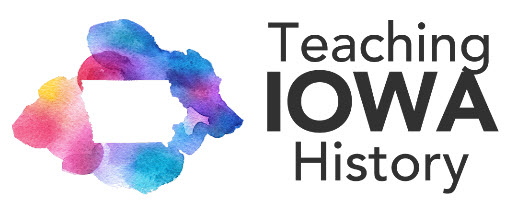Conger Reynolds (1891-1971)
- Founder, Journalism Department, University of Iowa
- Intelligence Officer, WWI
- Expeditionary Forces (Censor stamp displayed in Dexter Museum) U. S. Foreign Service Officer
- Director Public Relations, Standard Oil Company
- Founder Public Relations Society of America (1959 recognition clock displayed in Dexter Museum)
- U.S. Information Agency: People-to-People International
Born on a farm in Dallas County, Iowa, on March 23, 1891, Conger Reynolds grew up in the small town of Dexter, Iowa, graduating high school with the class of 1908.
He worked for a farmer during the summer, then ran a sweetcorn mixer and a cooker in the Dexter canning factory to earn money to attend Drake University. Transferring to the University of Iowa, he sold stereoscopic pictures door to door by bicycle, waited tables in Iowa City, and sold magazines in rural areas on a horse. He graduated Phi Beta Kappa in 1912.
His first job was as a reporter with The Des Moines Register and Leader, then with the editorial staff of The Register and Tribune.
Reynolds returned to the University of Iowa to become publicity director, and also taught journalism and English. While there he helped establish the Journalism Department.
When World War I commenced, he enlisted and was assigned to military intelligence in France, and later to the press section.
He served as Lt. Conger Reynolds, USA, Intelligence Officer with Gen. John Pershing’s Expeditionary Forces, WWI, later writing:
“All dispatches and mail articles had to be submitted to censors and passed by them before they would be allowed passage by cable or mail,” he later wrote. “I still have the rubber stamp with which I passed hundreds or thousands of articles before putting its impression on the final sheet and writing my name and rank across it.”
After the war Reynolds remained in France as managing editor of The Chicago Tribune, Paris edition.
In 1922, he was assigned vice-consul to Halifax, Nova Scotia, for two years, then vice-consul and later consul in Stuttgart, Germany, specializing in trade promotion.
The citation for Distinguished Service was awarded to Conger Reynolds in "Recognition of Outstanding Service to the Advancement of the Public Relations Profession in 1959" by the Public Relations Society of America.
Moving to Washington, DC, he joined the US Information Agency as director of the Office of Private Cooperation. There he worked with the Eisenhower administration to launch the People-to-People International program which was designed to promote international understanding. He worked in this capacity until 1961, when he retired. Conger Reynolds died in 1971.
For more information:
- The History of Dexter, Iowa, 1968, p. 108.
- The papers of Conger Reynolds have been collected by the University of Iowa, documenting the remarkable life and career of a man who grew up in an Iowa town of fewer than 800 people. Guide to the Conger Reynolds Collection, The University of Iowa Libraries.
